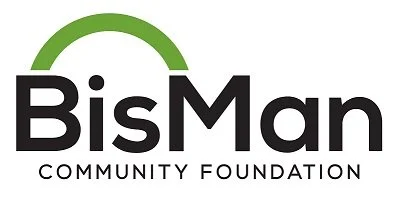Susanne Mattheis passed away in 2007. In 2018, she bought new books for the Bismarck Public Library.
Susanne left a gift in her will to provide resources for her favorite charities, including Bismarck Public Library, Bismarck-Mandan Symphony, and University of Mary. Her fund provides thousands of dollars in grants to these entities every year. Susanne made sure that the organizations she loved would have her support long after she was gone. Learn more about Susanne’s giving story…
Her last gift will last forever.
Give Tomorrow
Give Today
Write a check or donate online
Transfer appreciated stock
Donate real-estate
Donate equipment
IRA Charitable Rollover (QCD)
Mail donations to:
BisMan Community Foundation
PO BOX 387
Bismarck, ND 58502
Contact us for instructions on donating stock, real-estate, and equipment.
Here are two easy ways to create a simple legacy gift upon your death:
Bequest
Include a specific, percentage, or residual designation to the BisMan Community Foundation in your will. Use this simple language:
I give and bequeath to the North Dakota Community Foundation (Tax ID Number 45-0336015), a qualified charitable organization under IRS 501(c)(3), located in Bismarck, North Dakota, ___________ (a percentage of the estate, specific dollar amount, or remainder of estate) for the BisMan Community Foundation, a permanent component of the North Dakota Community Foundation.
Beneficiary Designation
Name BisMan Community Foundation as a beneficiary of your retirement fund or life insurance policy for simple planning while continuing to use the account as long as needed. It reduces the burden of taxes on family after the donor's death, avoids legal fees, and provides an estate tax charitable deduction. It’s easy to do - simply contact your account provider for a beneficiary designation form and list “BisMan Community Foundation (a component of North Dakota Community Foundation” as a beneficiary. (EIN 45-033-6015)
We will gladly work with you and your financial advisor to create a plan that meets your financial and charitable goals.
Charitable Planning Resources
article
Personal Finance for Young Adults: Charitable Planning
Halsey Schreier | Feb 12, 2021 | Forbes.com
We know you give because you care deeply about your community and not for the incentives, but we thought you’d like to know about these important tax benefits of charitable giving:
Federal Tax Deductions for Charitable Gifts
In general, you can deduct up to 60% of your adjusted gross income via charitable donations, but depending on the type of contribution and the type of nonprofit, that percentage could be lower. Be sure to keep all documents related to your charitable contributions somewhere safe so that you can properly claim them on your tax return.
Keep in mind that in order to deduct charitable contributions, you will need to itemize at tax time. If the sum of all your charitable contributions is less than the standard deduction, it may not be worth the extra time and cost of itemizing. We strongly encourage you to consult a tax professional to learn if you would benefit from claiming charitable donations on your tax return. For more information and helpful tips, check out this article from Nerdwallet.com.
ND State Tax Credit for Endowment Gifts
Individuals may receive a North Dakota state tax credit for a contribution for $5,000 or more (lump sum or aggregate in one year) to a qualified North Dakota endowment. The tax credit is 40% of the charitable deduction allowed by the IRS up to a maximum credit of $10,000 per year per taxpayer or $20,000 per year per couple filing jointly.
Businesses (C corporations, S corporations, estates, limited liability companies, trusts, and financial institutions) that pay ND income tax may take a 40% credit up to a total of $10,000 for gifts to the qualified endowment fund of a qualified North Dakota charity.
This is a permanent credit that may be carried forward for 3 additional tax years if it cannot all be used in one year.
The BisMan Community Foundation is not engaged in rendering legal or tax advice. This page is meant to provide general information about charitable-giving incentives. The Foundation recommends that any prospective donor consult their tax or legal advisor before entering into a giving program.




